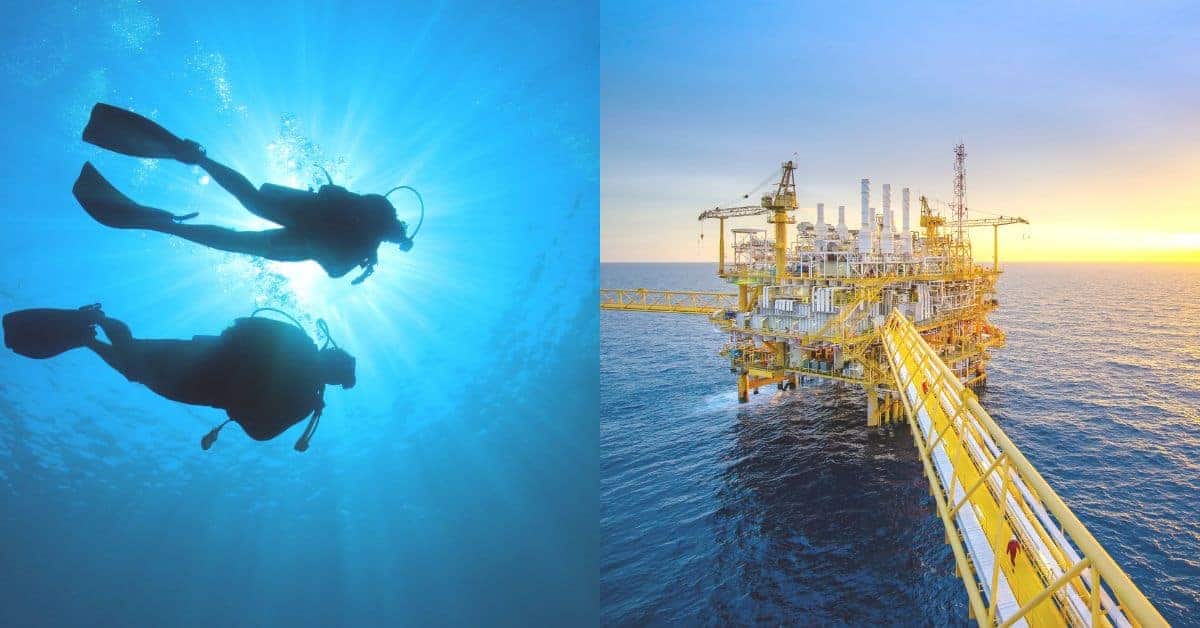An underwater welder in Malaysia is a skilled professional who performs welding and repair work on underwater structures such as offshore oil rigs, pipelines, and ship hulls. These specialists combine diving expertise with welding skills to carry out critical maintenance and construction tasks in challenging underwater environments.
In Malaysia, underwater welders can expect to earn between RM4,000 to RM10,000 per month, depending on their experience and the complexity of projects. Their primary duties include inspecting underwater structures, cutting and fitting metal components, and executing precise welding techniques while submerged. They also conduct underwater surveys, repair damaged structures, and install new equipment. Safety is paramount in this high-risk profession, requiring strict adherence to diving protocols and welding standards.
Underwater welders must be able to work in confined spaces, handle specialised equipment, and communicate effectively with surface teams. The job demands physical stamina, mental fortitude, and the ability to problem-solve in high-pressure situations.
Underwater Welding Malaysia
How much does a Underwater Welder make in Malaysia per month?
On average, an underwater welder in Malaysia can expect to earn between RM 4,000 to RM 10,000 per month. But it can vary greatly depending on factors such as experience, certification, and the specific job. However, more experienced and highly skilled welders can potentially earn even more.
Is Underwater Welder in high demand in Malaysia?
Yes, the demand for underwater welders is high but it vary depending on the industry and the specific projects that require their services. Research the current job market and industry trends in Malaysia to determine the demand for underwater welders.
Is Underwater Welder a good career in Malaysia?
Yes, there is a growing demand for underwater welders due to the country’s extensive coastline and the need for maintenance and repair of offshore structures. However, the job can be physically demanding and dangerous, and it requires a significant amount of training and certification.
How can I become a Underwater Welder in Malaysia?
To become an underwater welder in Malaysia, you’ll need to complete your SPM or equivalent qualification. Then, enrol in a diving course to get certified as a commercial diver – this is essential. Next, pursue a welding certification from a recognised institution like the Department of Skills Development (JPK). Once you have these qualifications, gain experience in both diving and welding separately.
Look for apprenticeship opportunities with offshore companies or shipyards to get hands-on training. Consider taking specialised courses in underwater welding, which are sometimes offered by international training centres.
Network within the industry and apply for entry-level positions with offshore oil and gas companies or marine construction firms. Keep in mind that this career requires physical fitness, mental toughness, and a willingness to work in challenging underwater environments. Stay updated on safety protocols and new technologies in the field to remain competitive in the job market.
Disclaimer:
This guide is provided as-is and may not represent the most up-to-date information or requirements to become Underwater Welder.
It’s always recommended to seek advice from experts in the field and refer to reputable sources for the latest information.
We do not take any responsibility for any damages or decisions made based on the information provided in this guide.

